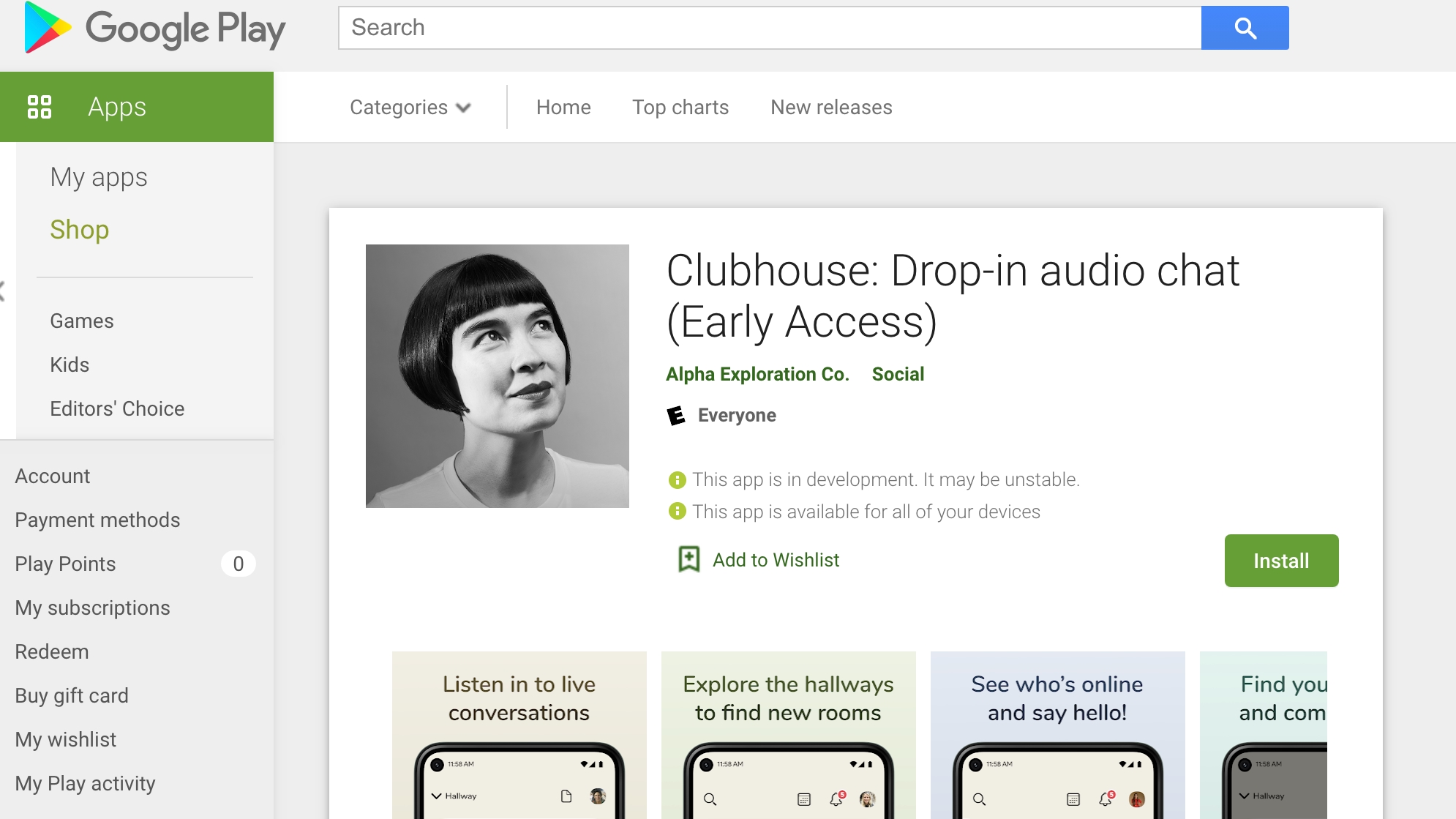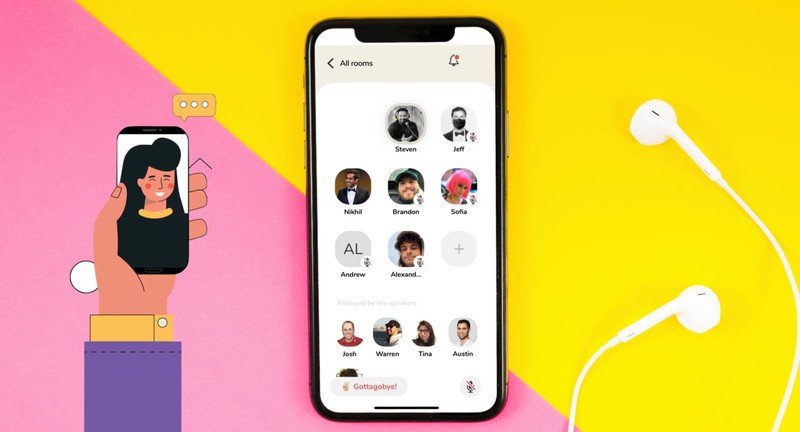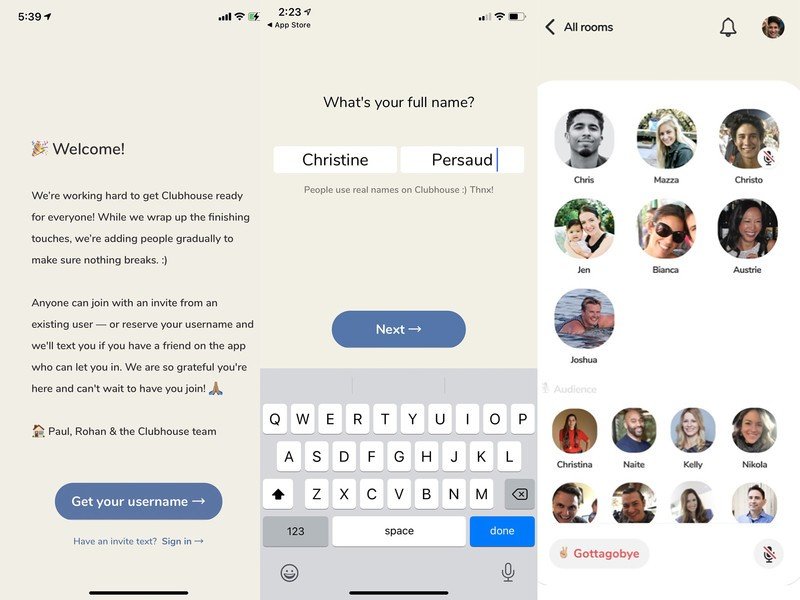Clubhouse's staggered rollout is detrimental and risking its momentum

Clubhouse might be able to grow the number of daily active users now that its service is open to Android phones, but experts think the staggered rollout will affect the overall success of the platform.
The voice-only chatting social media platform announced on May 21 its global rollout to Android users, but similar to iOS users, it will be on an invite-only basis. You'll also be able to use Clubhouse only on Android 8.0 and above, though that shouldn't be an issue for any of the best Android phones. The platform launched in 2020 and, at the time, was only accessible to iPhone users. The app became so popular that several social media platforms released features that imitated Clubhouse.
Alex Kantrowitz, the writer for the Big Technology newsletter, said in an interview that while it's common for many app developers to release on one platform first, in the case of Clubhouse, the move was "especially detrimental."
Kantrowitz explained that Clubhouse is the type of social media platform where conversations will happen all the time. Still, by being so delayed in its rollout to Android users, they've missed out on some of the more interesting conversations that have already happened, which could have helped the platform retain followers.
"There's a lot of iPhone users who already gave Clubhouse a shot and are essentially done," he said. "It's possible that if (Clubhouse) had opened it up to 80% of the world beforehand, there would have been more rich, more engaging conversations that would have taken place and would have helped retain those people."
Kantrowitz added that while the platform will likely get a surge of new users, the second peak will have to be as successful as the first one if the platform wants to stay relevant and successful.
"There was a lot of excitement around conversations happening on Clubhouse a few months ago, and Android users missed out on that. The fact that Elon Musk would visit Clubhouse, but it was just iPhone users is a shame because there could have been that shared experience between iPhone and Android users.""You'll need another one of those types of peaks of interesting conversations to hit with the same force in order to be as attractive to Android users. (Clubhouse) can do it, but the struggle is just going to be much harder than it needed to be."
In May, Clubhouse said in a blog post that when the platform started gaining popularity in an unprecedented way, it saw downsides like widespread server outages, notification failures, and surpassing the limits of our early discover algorithms. The platform said that when apps scale too quickly, things can break, and that was why it chose to expand on iOS first on an invite-only basis.
Get the latest news from Android Central, your trusted companion in the world of Android
"It made us shift our focus to hiring, fixing, and company building, rather than the community meetups and product features that we normally like to focus on. It was an important time of investment, which we think will help us serve the community much better in the long run."
Clubhouse is about real-time conversations. Designing it for iOS is easier.

Richard Lachman, an expert on user experience and associate professor at Toronto's Ryerson University, said in an interview that app developers tend to have staggered rollouts because they want to ensure the features are functional. He noted that startups like Clubhouse want to be able to get in front of users as quickly as possible and that if you "want to limit the engineering time before you can get to market," then designing for iOS is easier.
And despite big names appearing on Clubhouse in the past few months, Lachman doesn't think that it will affect the interest of Android users.
"Clubhouse has that sense of immediacy; it has a sense of real-time like you're part of something as it's happening. I think Clubhouse is trying to build a brand for that kind of conversation. Yes, you might not have been part of this one conversation, but this is the kind of place where those conversations can happen."
Lachman did agree that Clubhouse will be motivated to scale massively because so many Android users are missing out on specific, timely conversations, but that Clubhouse's engineers felt it was too risky to launch to that many people without making a mistake.
Clubhouse "momentum has cooled."

Ramona Pringle, a tech expert and associate professor at Toronto's Ryerson University, said in an interview that just because a staggered rollout might work for certain apps, it likely won't be successful for Clubhouse.
She said because the "momentum has cooled," the app will face difficulty in holding onto new users from the Android space.
"For something like this, they needed that momentum. Are they going to be able to now have the same enthusiasm just among Android users and get a second wind off of that? It seems unlikely.""Much of that hype early on was about its exclusivity, and people wanted in, and they were curious. They were home and isolated, and people weren't vaccinated yet. And so it was the perfect time for an app like this, but I think that if they had wanted to reach the masses, their opportunity was when it was deemed exclusive."
Pringle said that people are going to question the incentive to join now, and likely will wonder if they'll still get to experience the same quality conversations that were had last year.
She noted that the next wave of interested users would likely not be new Android users but rather device-agnostic users who are coming from different industries to understand how the platform adds value to their work.
"It might come a little later with maybe the creative community or device-agnostic users who start to figure out the really interesting tools that make them want to come back to the app," she said.

Shruti Shekar is Android Central's Editor-in-Chief. She was born in India, brought up in Singapore, but now lives in Toronto. She started her journalism career as a political reporter in Ottawa, Canada's capital, and then made her foray into tech journalism at MobileSyrup and most recently at Yahoo Finance Canada. When work isn't on her mind, she loves working out, reading, watching the Raptors, and planning what she's going to eat the next day.
